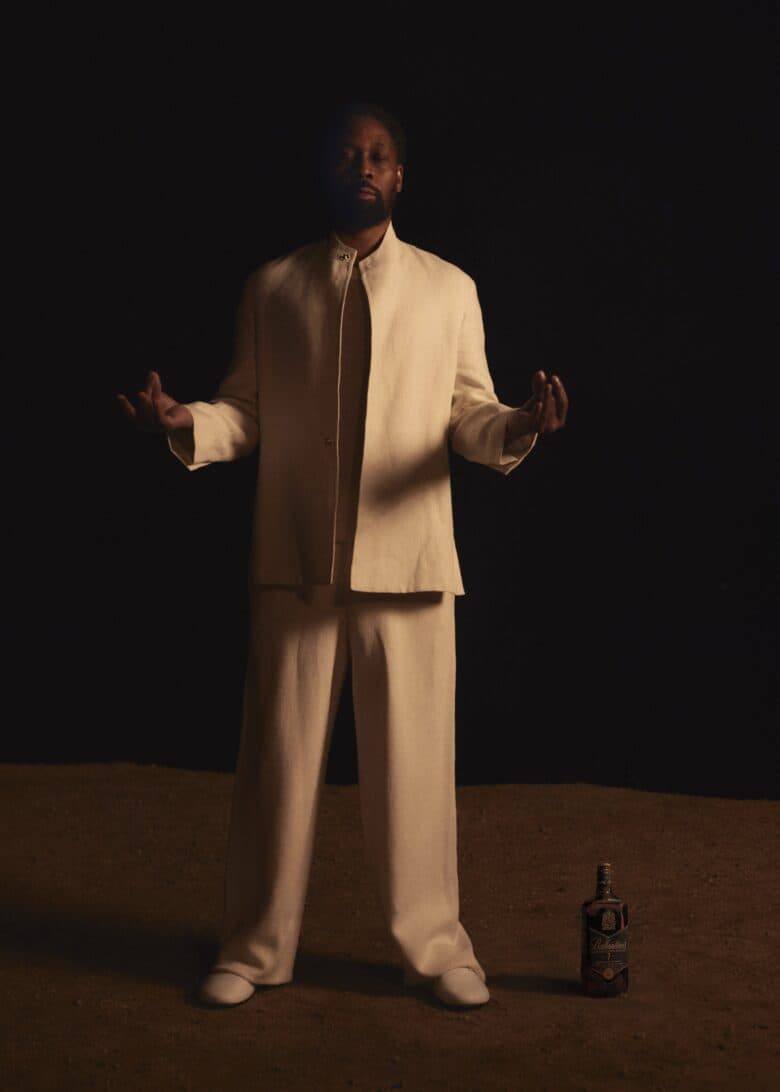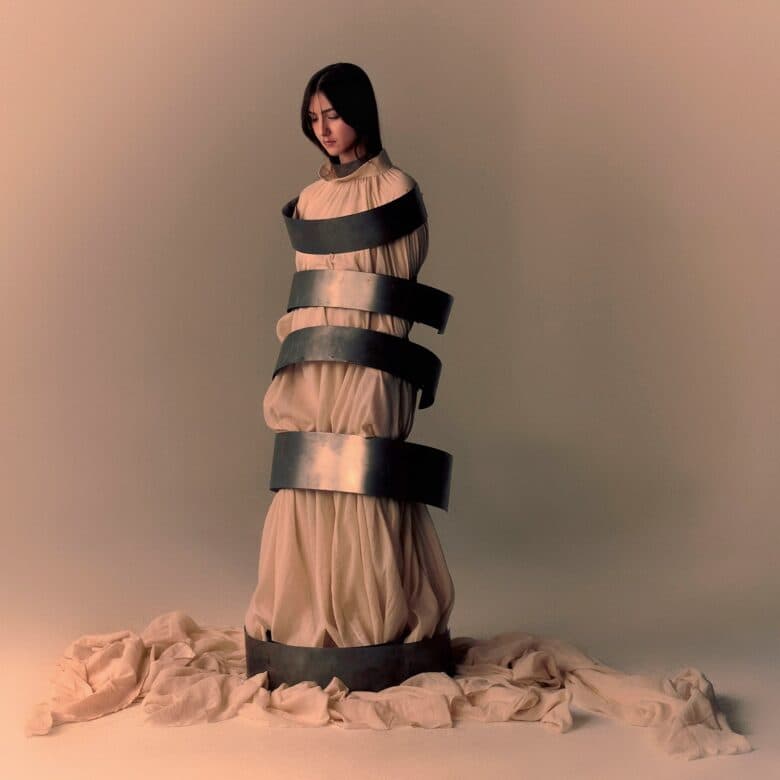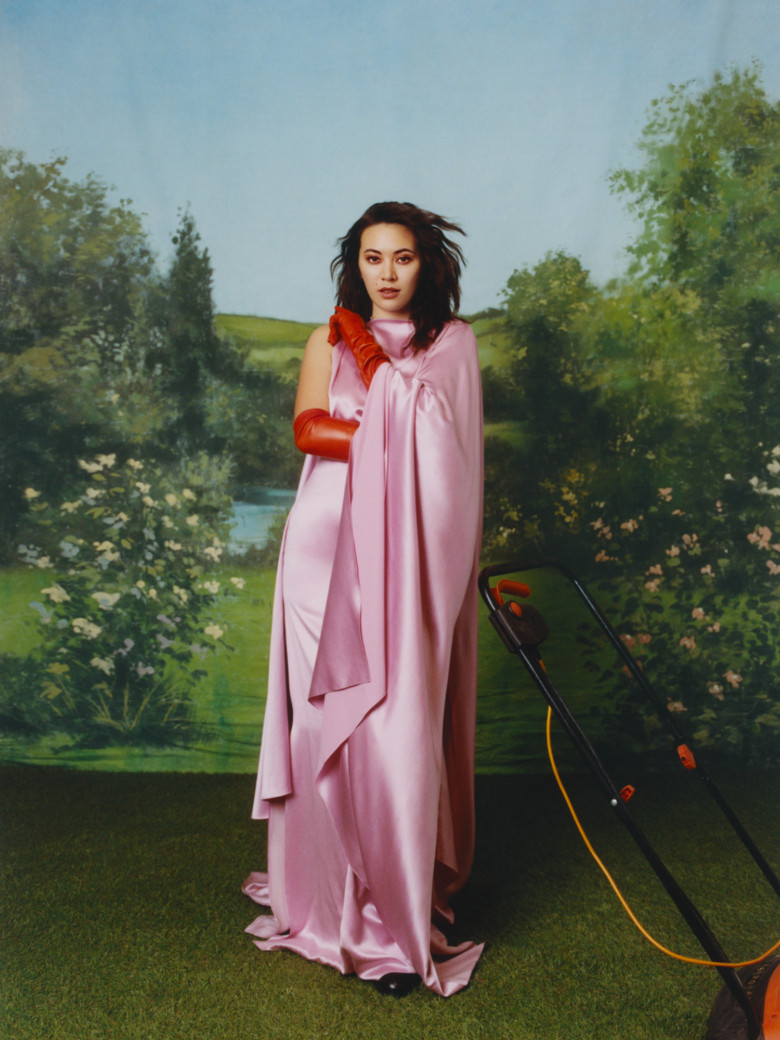Devon Ross goes the distance
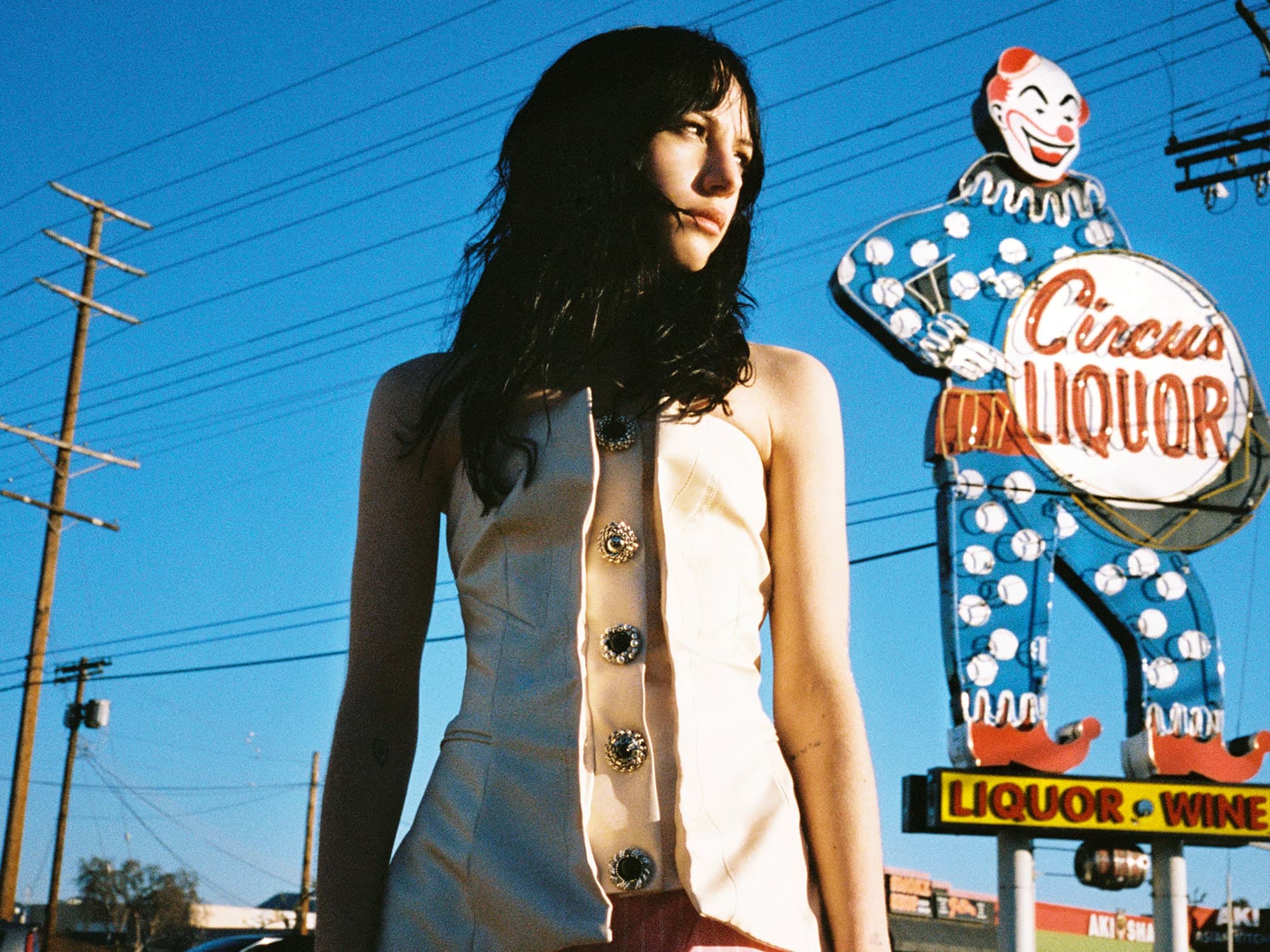
- PhotographerMax Montgomery
- WriterRy Gavin
Few faces rarely grace the pages of HUNGER more than once. Even fewer go from our series spotlighting up-and-coming talent to being on the cover of one of our anniversary issues in the space of a couple of years. Then there’s Devon Ross – model, actor and now musician – who has done just that.
Five issues ago, Rankin photographed Ross in our London studio as we captured the rising star who was proving that “cool” was an achievable thing. She had a few notable campaigns under her belt and exuded the energy of someone who was destined to be a lot bigger than she was at that moment. However, this time it’s not Ross’s modelling that has brought us together, nor is it her acting (roles in Irma Vep, Fragments Segments Vestiges and Heavenly High come to mind). In fact, it’s the launch of her EP, her first full musical project, Oxford Gardens.
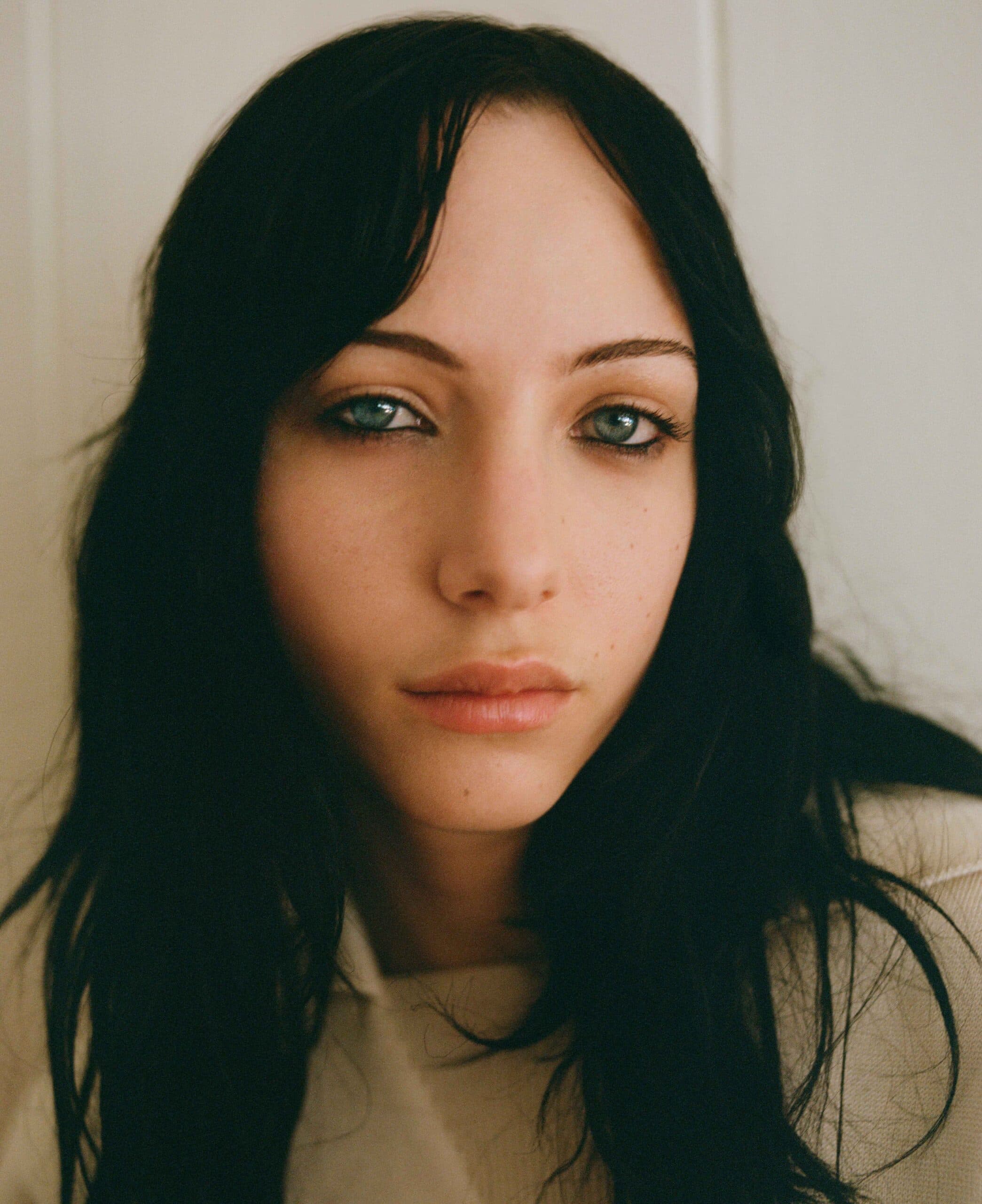
At the time of writing, the EP has just dropped, and Ross has embarked on a mini tour of sorts taking her from Los Angeles to New York. Her Instagram stories are full of her on stage somewhere, head down, looking at her right hand as it slashes at her guitar strings, her red tartan skirt crumpling as she descends to the stage floor fully engrossed in the “angsty” sounds, as she describes them, of her first offering as a musician. And it’s important not to class Oxford Gardens simply as a foray, a culmination of one of Ross’ hobbies, as it feels totally right, as if music was something we have been waiting for all along.
It’s not that early in Austin, Texas, when we talk (pre- tour), and Ross is perching on a sofa (or possibly a bed), sleeves pulled around her hands, her boyfriend sitting off camera. Every so often she passes on one of the questions to him or smiles in his direction. She speaks with a soft tone that sounds similar to accents you hear in quirky American films – gentle, composed and thought-out. The signature moodiness of her look that is conveyed via social media fades quickly through her frequent smiles and laughter. As expected, Ross discusses her music as though it was always going to happen, it was just a matter of time. There’s her guitarist father, Craig Ross, who has worked with and written for the likes of Lenny Kravitz. And then there’s also the aura of Devon Ross and her love of British bands and the need to turn her emotions into something palatable both for herself and for us…
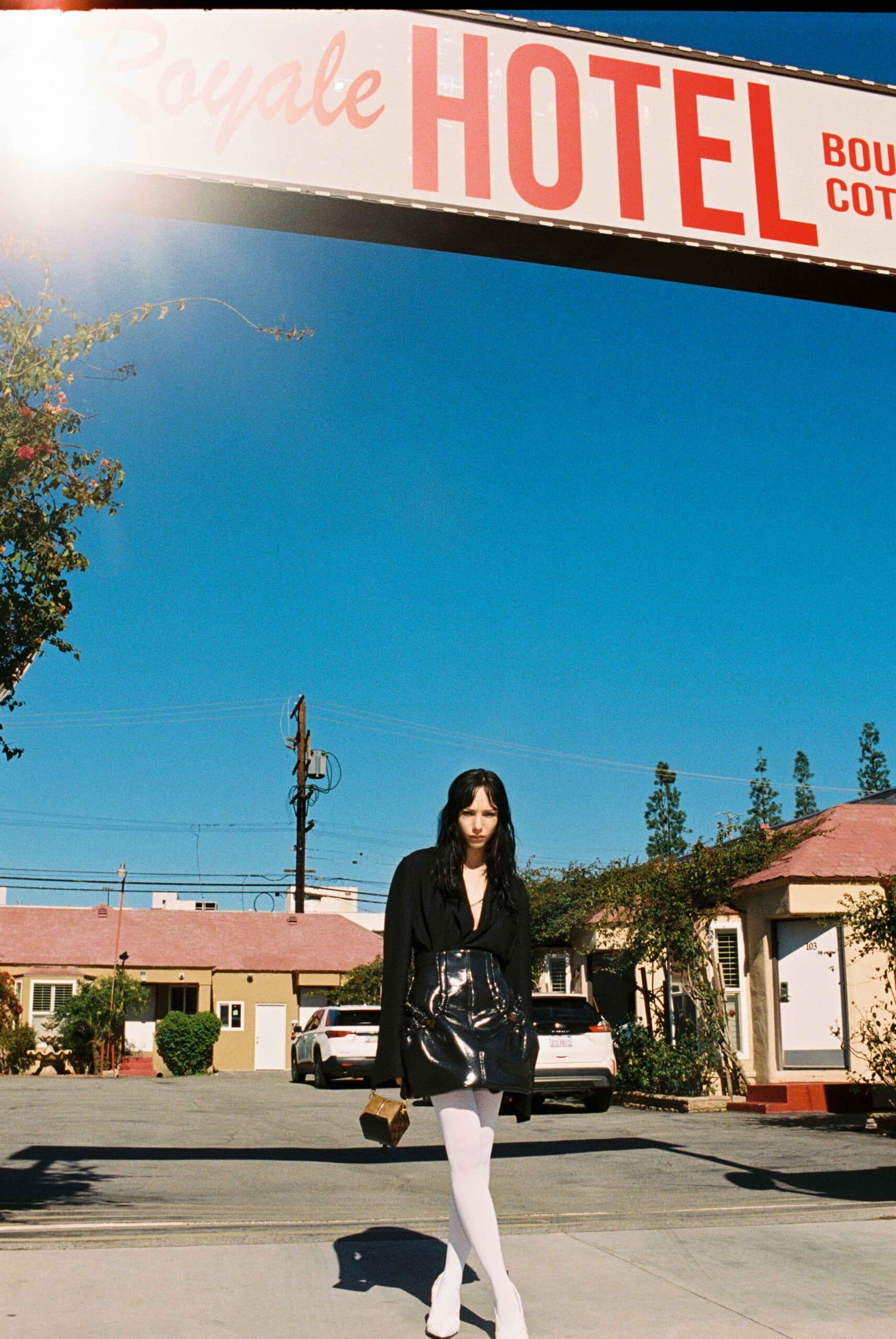
Ry Gavin: Hey, Devon, it’s been a minute! Where’s your head at now?
Devon Ross: My head is preparing for this mini tour that we’re about to do to launch my EP. So we’re kind of just planning that. But yeah, I don’t know. I’m just getting ready to work on the next project – writing music and reading a lot. That’s where my head’s at at the moment.
RG: Do you find that you’re writing more music now that you’ve completed a pretty substantial body of work and your first full project?
DR: For me, it comes in spurts. I’ll have a week where I’m just not really writing and then there will be really intense little spurts of working on stuff. I have this same pattern that happens.
RG: Where in the world do you feel the most creatively charged?
DR: Paris, probably. I wrote the EP there and I recently went back there to write too. For some reason I find it so easy to write there, even though it is such a distracting city and I have loads of friends there. I just feel super-inspired there. I mean, that makes sense – it’s Paris. I think a lot of people feel that way about Paris, but yeah, for me, I feel like I write the best stuff there.
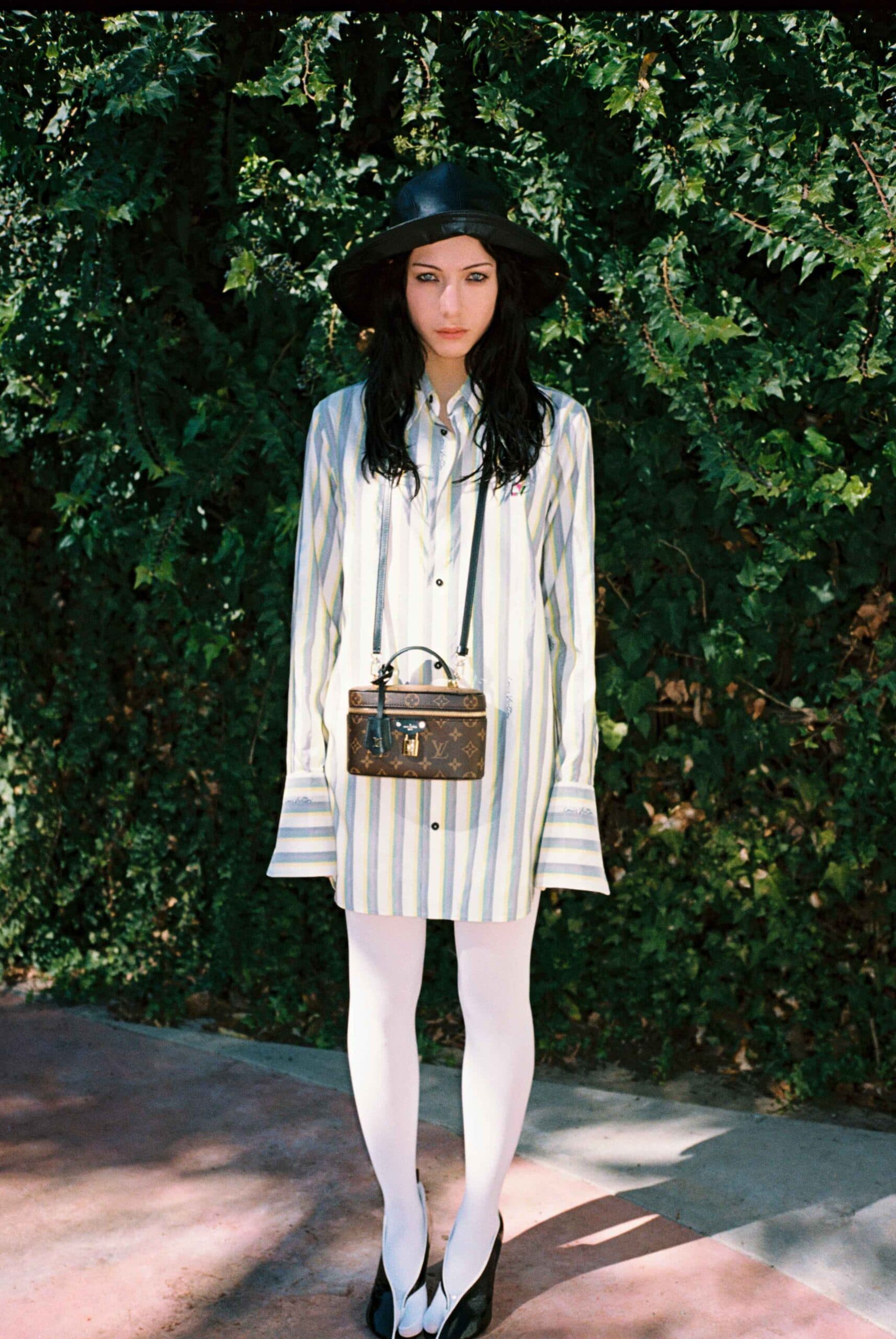
RG: It’s a bit surprising you didn’t say London – a glance at your Instagram and anyone can see your love of British culture, the music, the bands in particular. You’re even wearing a Union Jack top on the cover of your EP.
DR: I love London so much. I lived there for so long. Obviously that feels homey to me too. I’ve just done more writing in Paris and I recorded there, so it’s that place for me. But I’m sure London can be that place too!
RG: When did you start writing Oxford Gardens?
DR: Around May or June last year. I was going through a really crazy change in my life, which just propelled me to go off on a writing spree. I was feeling really angry and had all these different feelings. So writing was a tool to get through that. Whereas, when I’m happy and I’m writing, it’s a different process, I guess. I’m not trying to get feelings out in a poetic, musical way. It just produces different work – I love angry songs and I love happy songs too.
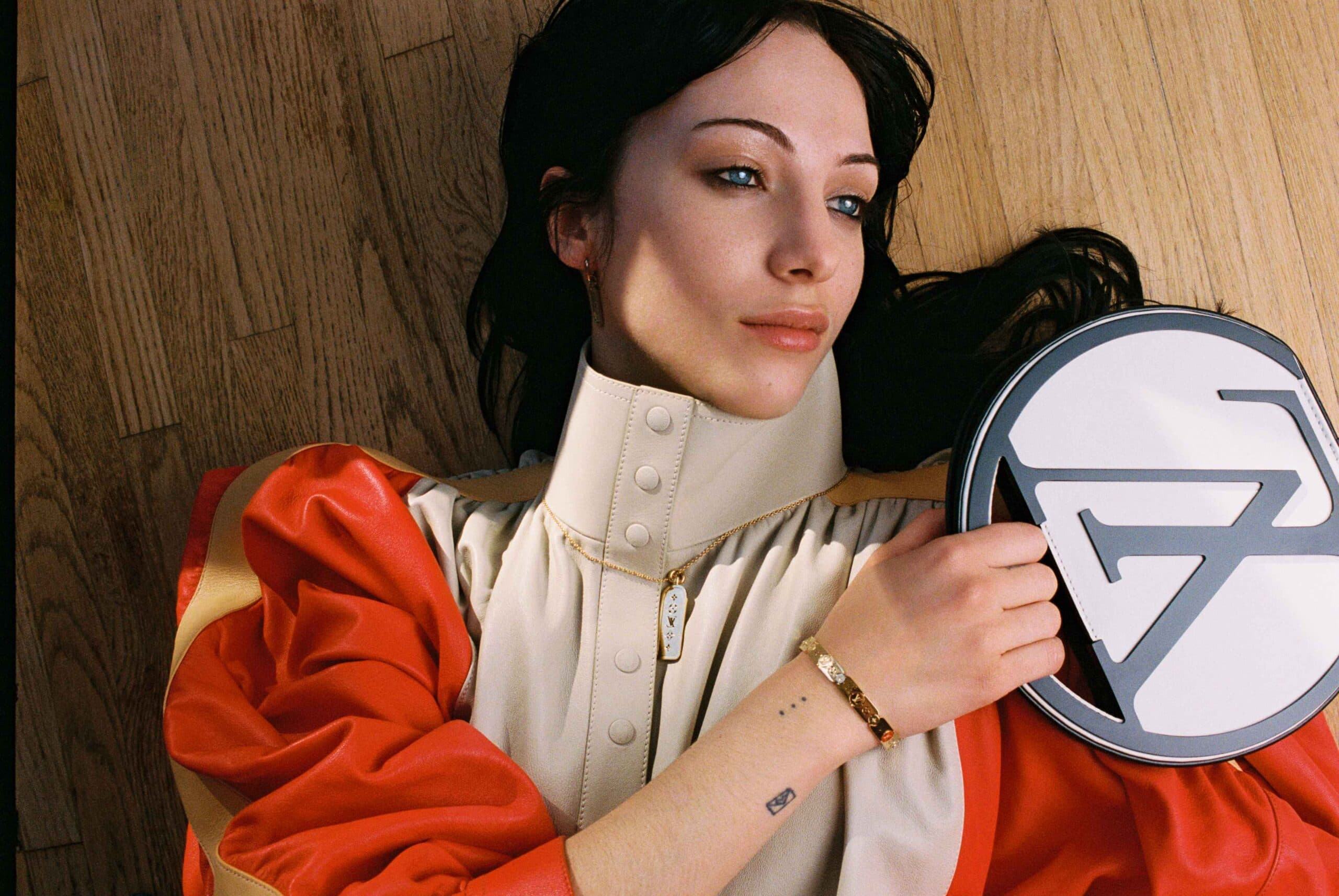
RG: When you talk about being comfortable or uncomfortable in your life when you approach writing, does that link to writing from a happy or an unhappy place, or are they two separate headspaces?
DR: Maybe unsettled is a better word than uncomfortable. Last summer, when I went through a really big change, my life was not up in the air, but all of a sudden I was sort of displaced in my life and had a lot of things to figure out. It’s not like a coping mechanism, but it’s why artists paint or why artists do anything. You know what I mean? It’s just to express yourself and get your feelings out for yourself mainly. And then other people enjoy it, which is a plus.
RG: There is a real, tangible element of angst in the EP. Though you also give your songs space to breathe and allow time for each track to really play out in quite a self- reflective way. So it’s angsty on the one hand, but calming on the other.
DR: I think you can write in a way that people don’t necessarily immediately perceive it as, ‘Oh, this bitch is angry.’ There are Bob Dylan songs that are really beautiful, slow songs, but you listen to the lyrics and you’re like, ‘Oh, this guy’s mad about something.’ It doesn’t always have to sound like the angriest thing. But it can feel that way for me.
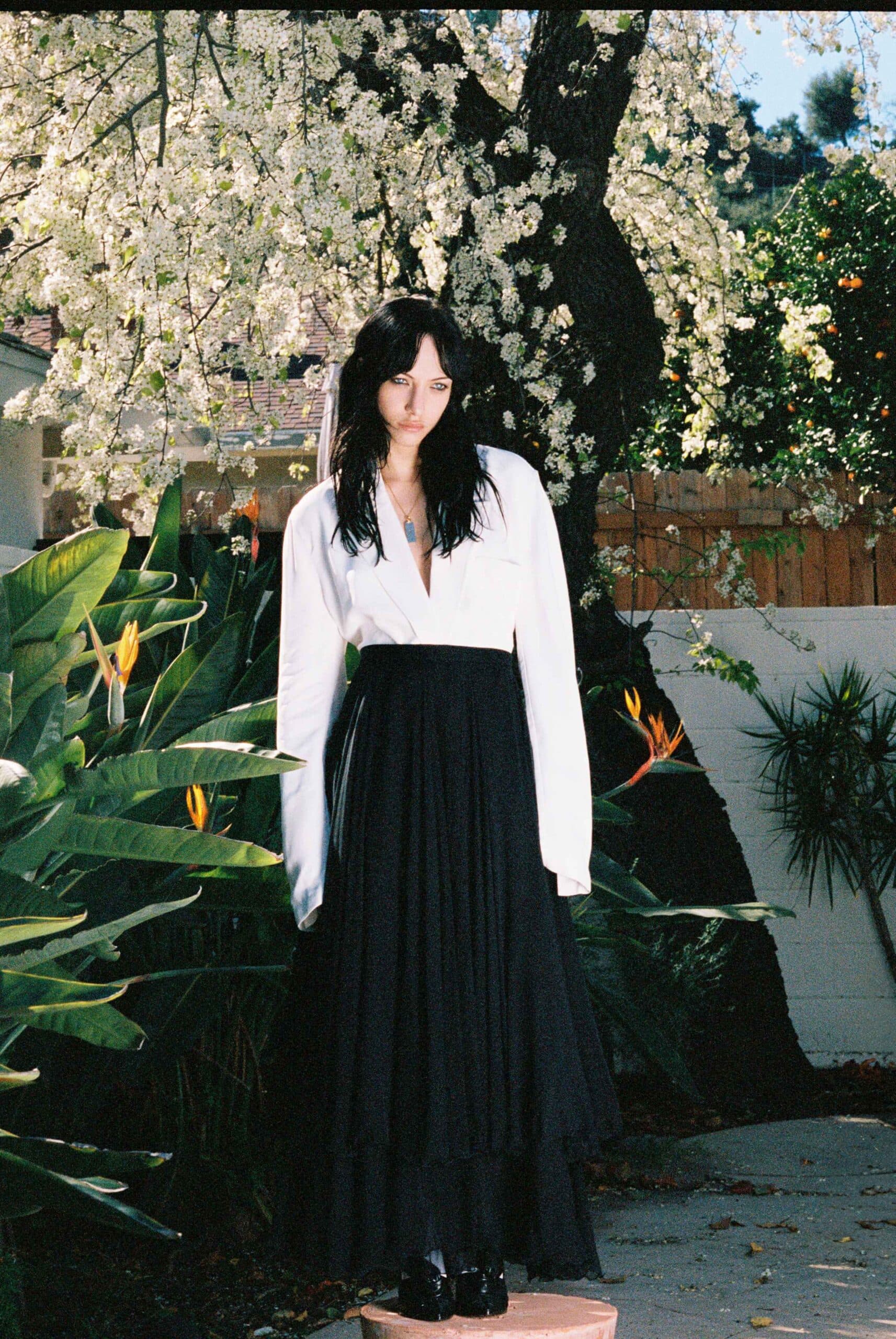
RG: Yeah, he wrote the loveliest songs about the horrors of the Vietnam War you’ll hear, right? With Oxford Gardens, what was your process like – did you get in an angsty headspace from the start and bash it out quite quickly?
DR: I had so many feelings that I wanted to get out and music was the perfect way to do it. And it was a pretty quick process. I’d write maybe a song in a day and then go from there. I just had so many feelings at that time. I just went off really quickly.
RG: When did you start writing?
DR: Growing up as a teenager, I’d always write songs on guitar. But I was never the most comfortable singer. I never thought I was going to be a singer. That wasn’t really part of my plan. I really wanted to be a guitar player. But then something changed and I was like, ‘I think I need to be a singer because I have all these songs and I don’t want someone else to sing them.’ I’d dabble in writing words, but it was never anything I was in love with. I don’t think I’ve found my style of writing yet. But I started writing for myself and it felt right.
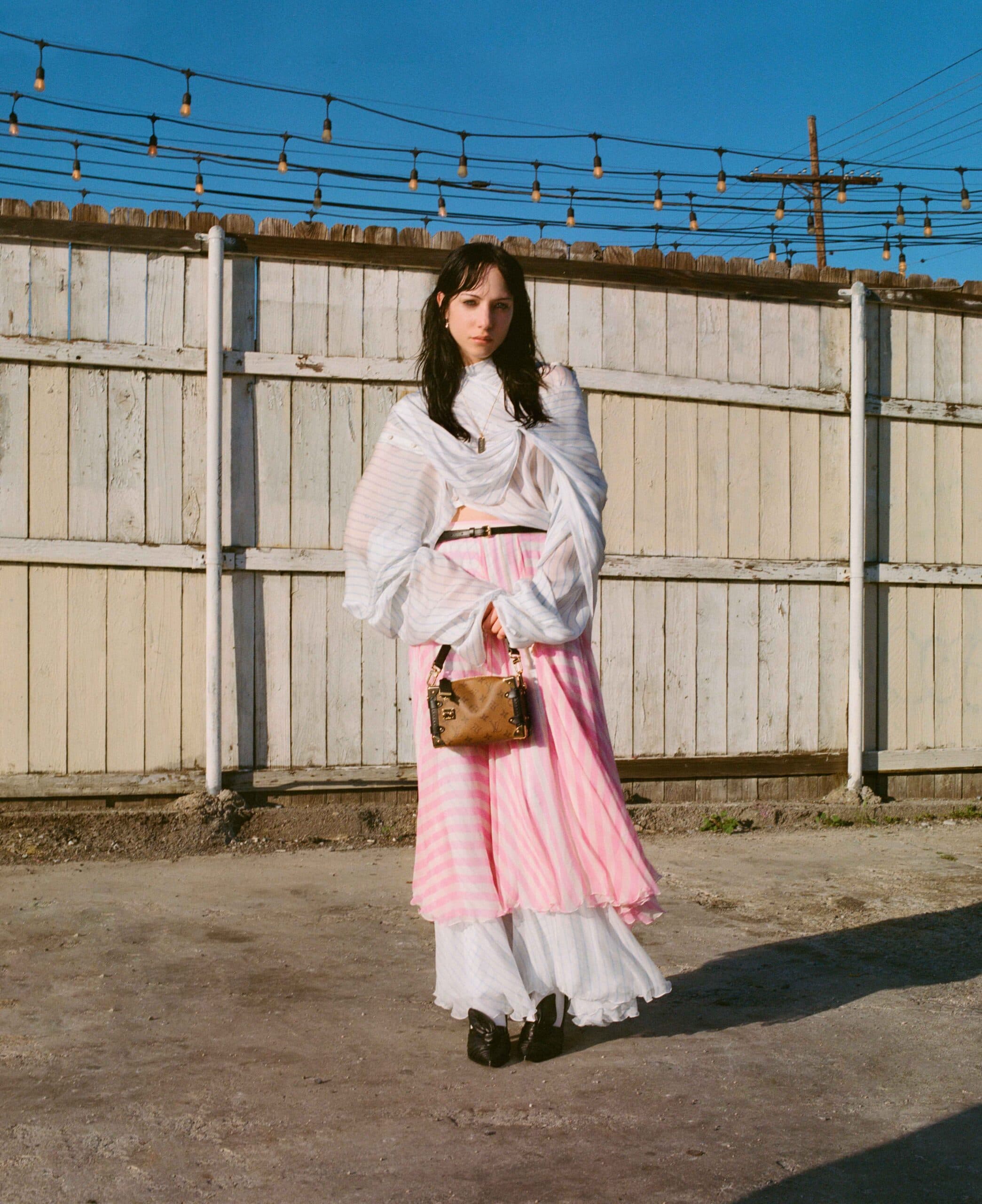
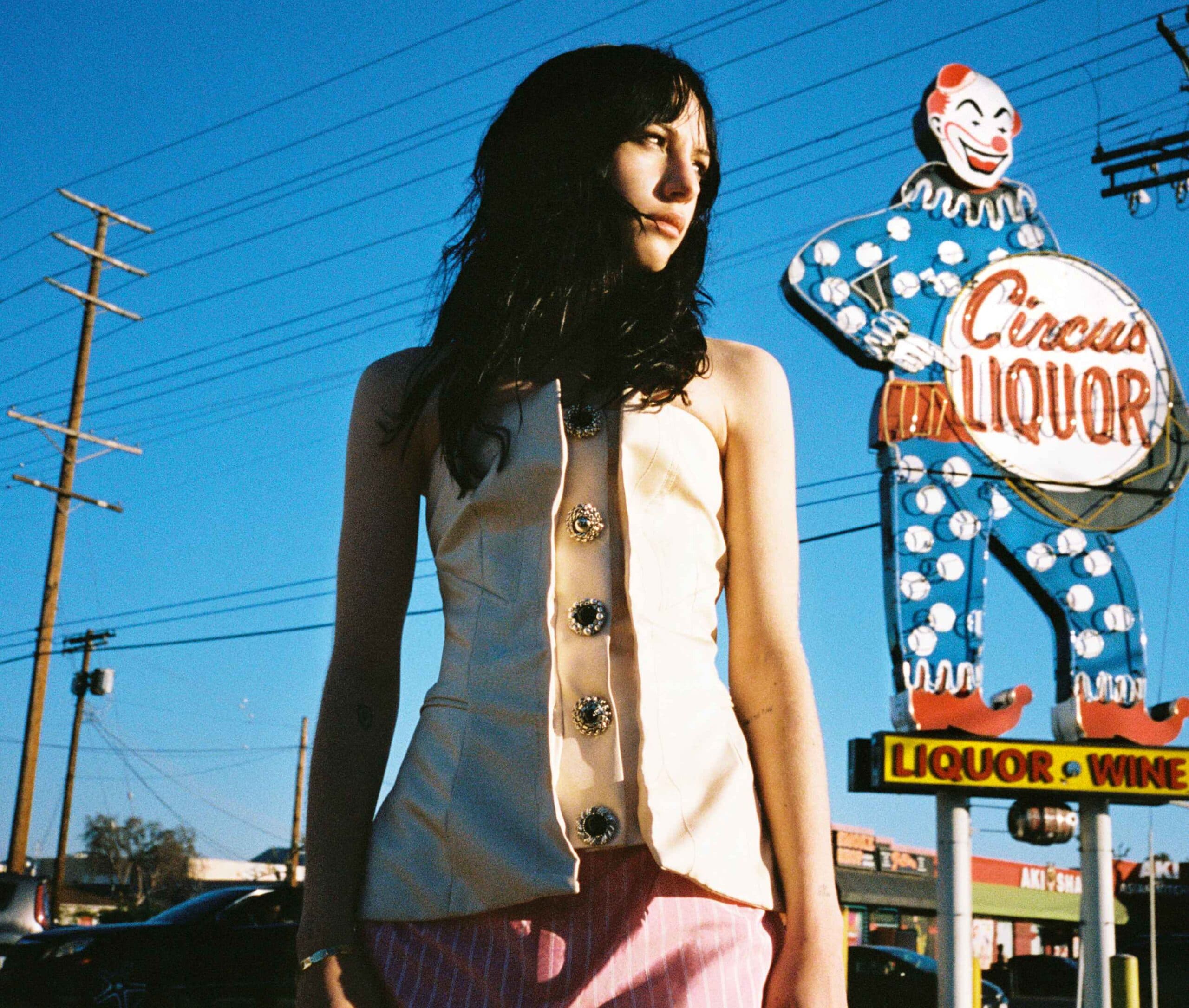
RG: Why did you first start writing?
DR: I’ve been surrounded by music my whole life, so I think when I started playing guitar, writing was just a part of it. It’s something natural that happens when you play an instrument. I had friends in bands and my best friend at the time was a singer and we would write together. My dad’s a guitar player, so there was music in the house all the time.
RG: Why did you feel like now was the time to release an EP?
DR: I wasn’t even planning on doing it when I started making these songs. I made the first song and then I made another song, and then I made another song and I was like, I think this is it, I think I should put this out.
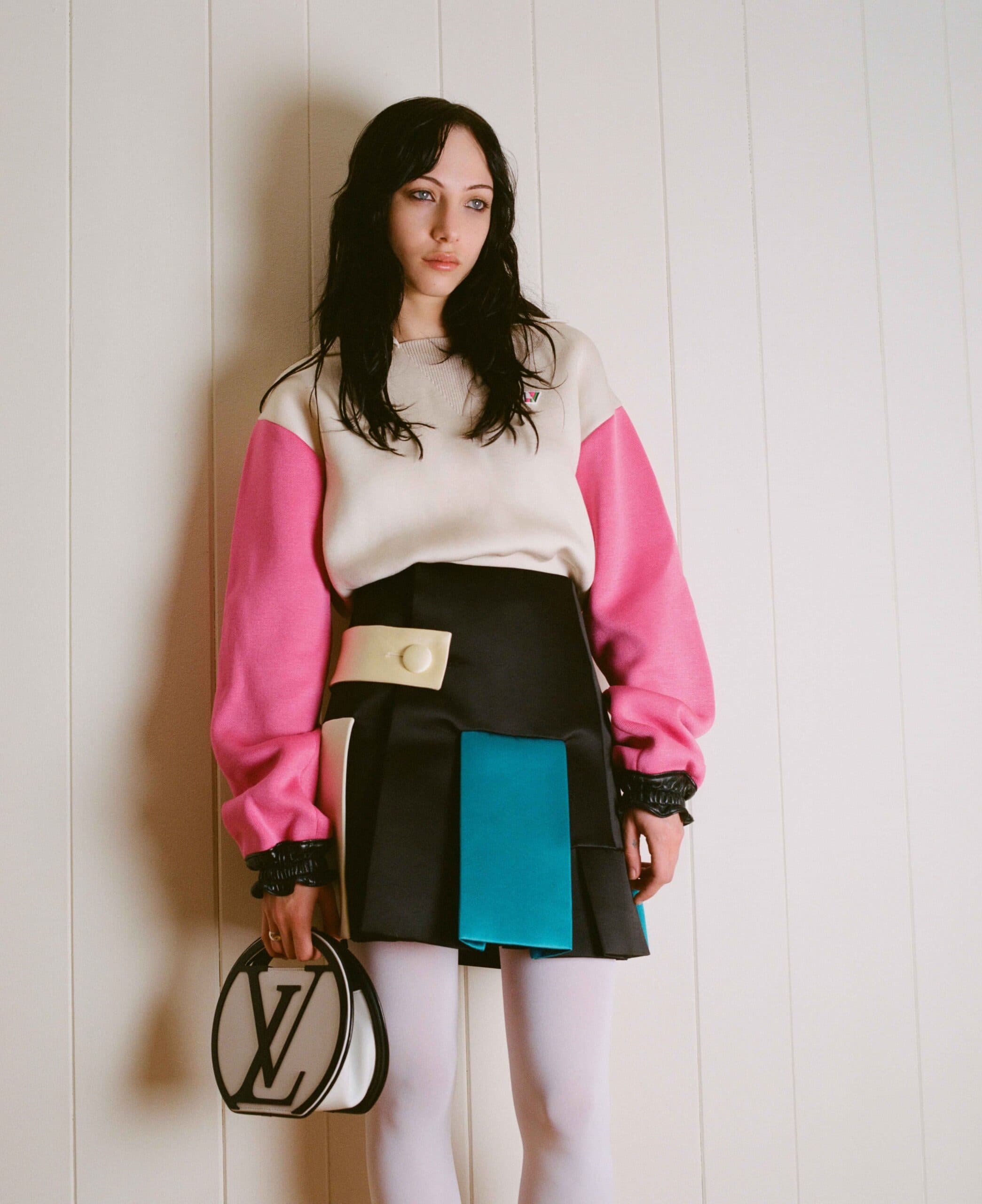
RG: In terms of your acting, your modelling and your songwriting, how can you talk about the differences in terms of the creativity that goes into them? Because you are accessing different forms of it…
DR: That’s why I love to do all these different things. They’re so creatively fulfilling, but in such different ways. My music’s a collaboration, of course, but movies are really a collaboration. You’re working with this director or writer to make their vision come alive. You’re working with all these different people to make this story something special and what they had envisioned. The whole thing about playing a character is that you can work with the director on what your ideas are of the character and give them suggestions. With music, it’s way more personal because I’m kind of the boss of myself, you know? I’m working to make my vision come alive. So I have all the control, which is really special. I think they’re both super-fulfilling, but in different ways. Music is just a really, really personal thing.
RG: One more question – how will you measure success as a musician, an actor and as a creative in general?
DR: Feeling successful to me is when you’re really confident and happy with something that you created. When I finish the EP and I listen to the songs and really like them, then I feel successful. Success doesn’t really have to correlate with money or awards or what have you. I feel like it’s mostly when you’re proud of something that you’ve done. I think you then feel successful
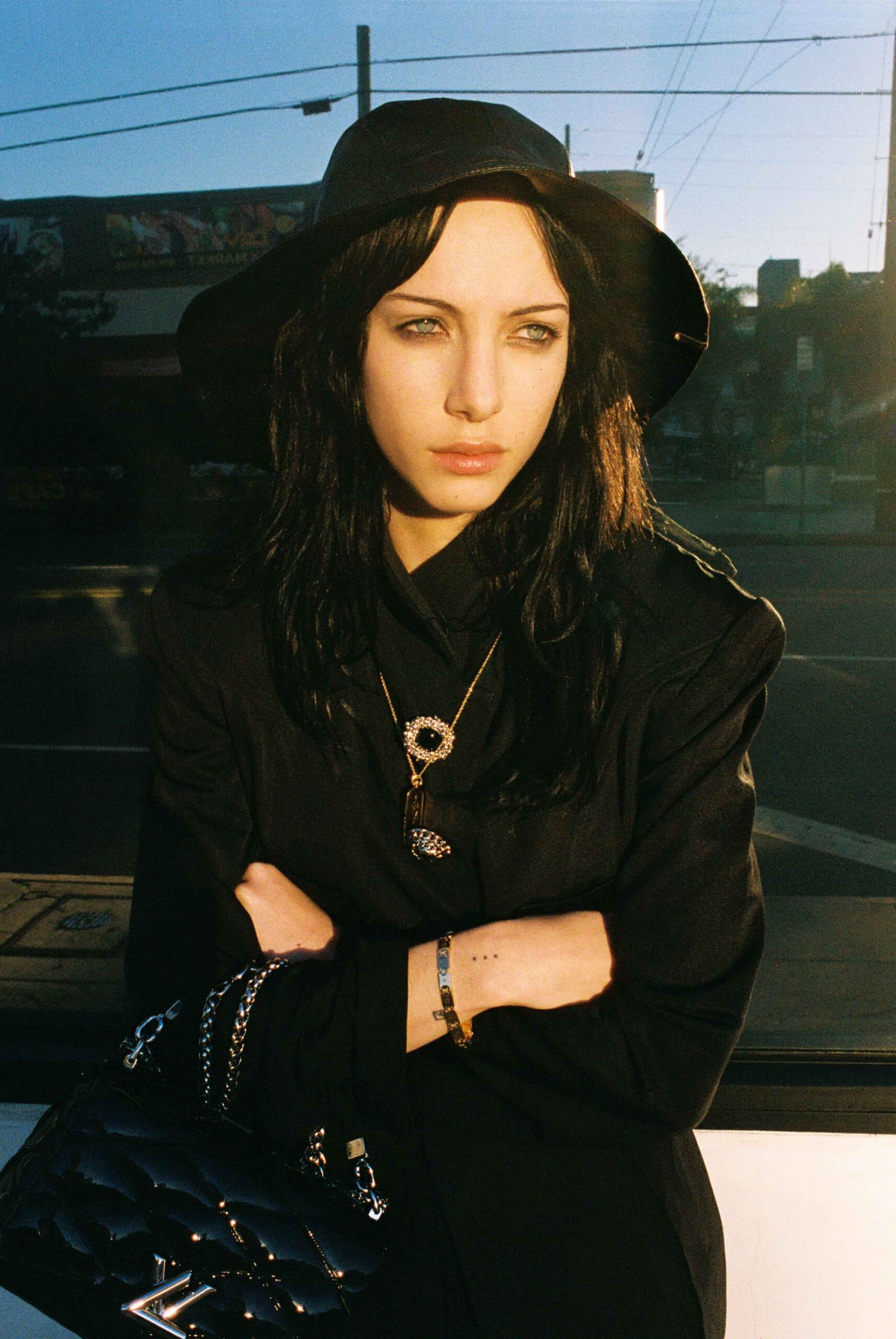
- PhotographerMax Montgomery
- WriterRy Gavin
- Fashion and Beauty DirectorMarco Antonio
- Hair StylistGregg Lennon Jr
- Photography AssistantDaniel Byun


